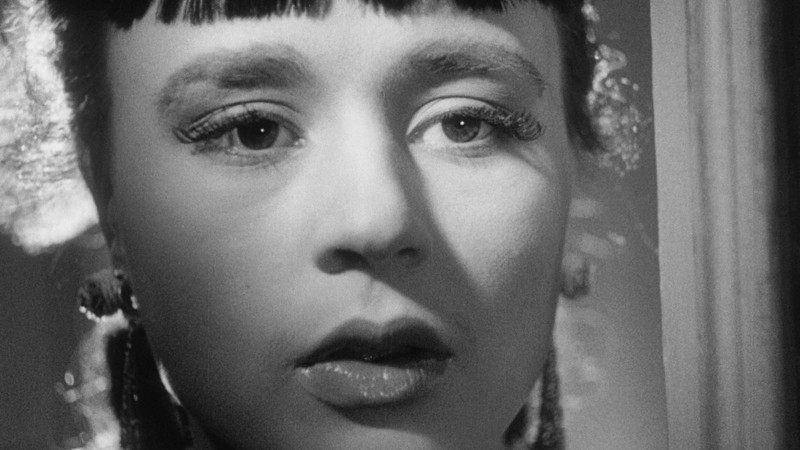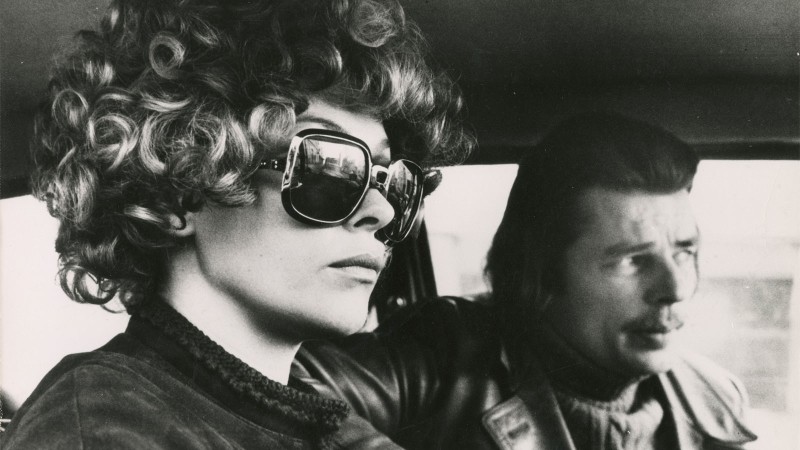Critical Returns

The New York Film Festival opens this evening with Nickel Boys, RaMell Ross’s adaptation of Colson Whitehead’s 2019 novel about the friendship between two teens attending an abusive reform school in Jim Crow–era Florida. Talking to Ross for Metrograph Journal, Nick Pinkerton asks if he feels he’s been able to “keep a steady course” between his first feature, the widely lauded and fiercely independent production Hale County This Morning, This Evening (2018), and this studio-backed project.
- With Four Nights of a Dreamer (1971) screening at the NYFF, Lancelot du Lac (1974) and The Devil, Probably (1977) at Film Forum, and Jennifer Kent (The Babadook) presenting A Man Escaped (1956) at Beyond Fest, there’s something of an informal Bresson revival going on. Sight and Sound has just republished a piece by John Pym from its Autumn 1983 issue on L’argent (1983), “a modern, rigorous, predetermined moral tale, which uses as its starting point a Tolstoy story, ‘The False Note,’ proceeds with a surety of footing which, right from the credit sequence (Parisian street noises, the hissing closure of the stainless steel lid of an outdoor cash-dispenser), belies the seventy-odd years of its maker, Robert Bresson. Although, as one would expect, the theme is other-worldly, the manner in which Bresson develops it reveals no flight from present-day realities or, indeed, from the course which down the years he has set himself.”
- Critic, historian, and video essayist Tag Gallagher, the author of books on Roberto Rossellini and John Ford, has just spent a week at the Cinemateca Portuguesa presenting five of Ford’s films. The Searchers (1956)—which screens on 70 mm in Berlin on October 17—was not one of them, but at Kino Slang, Andy Rector has posted Gallagher’s essay for the September 1993 issue of Film Comment in which he wrote that “evil in Ford is always good intention gone astray; and tradition, which sustains us, is always the humus where evil has its roots. Thus to the whites, in The Searchers, the violence done by Indians is too terrifying even to be imagined, but also it has the allure of archetypal fire, of the raw reality that ideology expels from our consciousness.” What interests Ford are “the traditions and community values that render otherwise decent individuals into willing agents of imperialism and genocide.”
- A newly restored 35 mm print of Shu Lea Cheang’s Fresh Kill (1994)—at WBUR, Sean Burns calls it a “woefully underseen anarchist eco-satire”—is currently touring theaters in the U.S. Joshua Minsoo Kim talks with Cheang about growing up as a budding cinephile in Taiwan, rooming with (and organizing a wedding for) Ang Lee in New York in the 1980s, working with the team behind the public access program Paper Tiger TV, setting up her first solo show at the Whitney, getting Vernon Reid to lay down a soundtrack for Fresh Kill, and audiences’ responses to the film thirty years on. “A lot of the post-screening conversations have been about us living in a corporatized world,” says Cheang. “I always recommend fighting within the system; my film is a way to make that resistance known.”
- Brian De Palma’s Body Double (1984) is “gory, violent, sexy, stylized, ridiculous, an extremely suspenseful picture that is somehow impossible to take too seriously,” writes Vulture’s Bilge Ebiri. “It also happens to be a masterpiece.” Ebiri talks with De Palma—who, by the way, is working on a new project—about casting Melanie Griffith, Hitchcock, and the resurgence of Body Double’s reputation. “I think why my type of movies last so long is they’re very cinematic,” says De Palma. “Cinema kind of died with celluloid, because you don’t have the same cinematographers anymore. You don’t have film anymore. It is now completely dominated by the writers and showrunners, and the movies and shows are basically radio plays, full of people talking to each other . . . That’s why I think people look fondly upon these movies, because they’re quite stunning visually, and you don’t see that anymore.”
- In a deeply felt appreciation of Robert Towne, who passed away this summer, Michael Sragow burrows into key passages in Towne’s screenplays for Hal Ashby’s The Last Detail (1973) and Shampoo (1975) and Roman Polanski’s Chinatown (1974); scenes Towne rewrote or added to Arthur Penn’s Bonnie and Clyde (1967) and Francis Ford Coppola’s The Godfather (1972); and the films Towne directed himself, including Personal Best (1982) and Tequila Sunrise (1988). Writing for Critics at Large, Sragow observes that Towne “used sly indirection, canny repetition, unexpected counterpoint, and even a unique poetic vulgarity to stretch a scene—or an entire script—to its utmost emotional capacity.” And he quotes Towne’s frequent collaborator Warren Beatty: “I’ve known writers like Tennessee Williams, Bill Inge, Paddy Chayefsky, Noel Coward. And if I had the opportunity to reincarnate any of them, I’d still take Bob Towne.”



